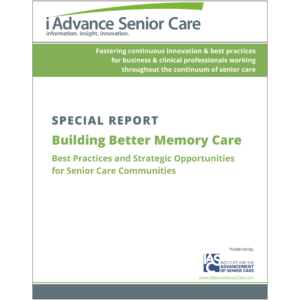A diet you’ll want to follow
You might want to consider keeping that New Year's resolution if not to lose inches around your waistline, then for your brain.
A diet designed to lower the risk of developing Alzheimer's disease tied first place as the easiest to follow in US News & World Report's 2016 Best Diets issue. It also tied second place for best overall diet, third for best diet for health eating, fourth for best diet for diabetes and fourth for best heart-healthy diet.
Mediterranean-DASH Diet Intervention for Neurodegenerative Delay (MIND) scored an overall 4.0 out of 5.0 from a group of expert panelists. "The MIND diet presents new research based on the health benefits of a healthy diet pattern on neurodegenerative delay," one expert said, adding, "the longer people followed the MIND diet patterns, the less risk they had for developing Alzheimer’s disease."
The MIND diet may also slow cognitive decline among older adults even when they are not at risk of developing Alzheimer’s disease. MIND is a hybrid of two balanced, heart-healthy diets: Mediterranean and Dietary Approaches to Stop Hypertension (DASH).
There is no daily calorie limit or any specifications. Instead, the diet consists of 10 brain-healthy food groups and five unhealthy groups. Healthy foods guidelines recommend:
- at least three servings of whole grains a day,
- a green leafy vegetable and one other vegetable every day,
- half a cup of beans every other day,
- poultry at least twice a week,
- fish at least once a week,
- berries at least twice a week,
- a glass of wine a day (optional),
- snacking most days on nuts and
- using olive oil as the primary oil.
Unhealthy foods should be limited to fewer than four servings of red meat a week; fewer than five servings of sweets or pastries a week; less than a serving a week of cheese, fried or fast food; and less than 1 tablespoon of butter a day.
Nutritional epidemiologist Martha Clare Morris and her colleagues at Rush Medical Center developed the diet by studying the food intake of 923 Chicago-area seniors, 144 of whom developed Alzheimer's over 4.5 years. The longer people followed the MIND diet, the less risk they appeared to have. The MIND diet lowered Alzheimer's ri sk by about 35 percent for people who followed it moderately well and up to 53 percent for those who adhered to it rigorously, researchers found.
Read more about the MIND diet here.

Nicole was Senior Editor at I Advance Senior Care and Long Term Living Magazine 2015-2017. She has a Journalism degree from Kent State University and is finalizing a master’s degree in Information Architecture and Management. She has extensive studies in the digital user experience and in branding online media. She has worked as an editor and writer for various B2B publications, including Business Finance.
Related Articles
Topics: Alzheimer's/Dementia











